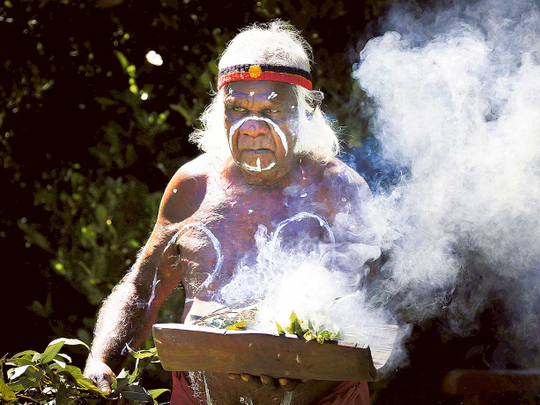
Sydney: Australia is failing to close an “unacceptably wide” gap in life expectancy between Aboriginal and non-indigenous people, officials admitted on Wednesday, highlighting the devastating impact of drugs and alcohol on the country’s original inhabitants.
Aborigines have lived on the vast island continent for at least 40,000 years and number just 670,000 out of a total population of 23 million. They have long had significantly lower education, employment and life expectancy compared to non-indigenous communities.
In a bid to tackle the stark differences, the government introduced an annual Closing the Gap report in 2009, the latest edition of which was released on Wednesday.
Prime Minister Malcolm Turnbull hailed progress towards achieving some of its targets, including a goal to halve the gap in child mortality by 2018, improvements in narrowing the divide in reading and numeracy, and an increase in the proportion of students completing high school.
But noting that the life expectancy gap remained unacceptable, he admitted there was an enormous task ahead, with “real and difficult challenges ... particularly in isolated communities”.
“The life expectancy gap is still around 10 years, an unacceptably wide gap, and this target is not on track,” he told parliament.
Life expectancy for non-indigenous males was 79.7 years compared to 69.1 for Aborigines in 2010-12, according to official data released in 2013.
For women, it was 83.1 for the non-indigenous population, in contrast to 73.7 for Aboriginal people, with a small reduction in the gap of 0.8 years for men and 0.1 years for women between 2005-07 and 2010-12.
Turnbull said that while indigenous people made up only around 3 per cent of the nation’s population, they represented 27 per cent of the prison population, with the adult incarceration rate rising.
He said drug and alcohol abuse was a key problem.
“We must be honest about the catastrophe and violence created by drug and alcohol misuse and confront and respond to the cries for help, particularly from women and children,” he said in an address to parliament in Canberra.
‘Tackle racism, constitutional recognition’
Turnbull said working with indigenous communities across the country to develop local policies and solutions was key to bridging the gap, an approach emphasised by both supporters and critics of the yearly report.
“We have heard these words before,” said Aboriginal and Torres Strait Islander Social Justice Commissioner Mick Gooda, who is the Closing the Gap campaign co-chair.
“We take them with good heart but there’s got to be a carrying-out of that new relationship so I think we’re entitled to be a little bit cynical about it until it starts happening.”
Indigenous leaders also said steady policy and funding for the health targets was necessary as a revolving door of prime ministers, politicians and bureaucrats was hampering progress.
“It’s turmoil not in Aboriginal and Torres Strait Islander communities but in this [parliamentary] house here that’s got to be resolved so we have a really consistent policy approach and consistent funding,” Reconciliation Australia co-chair Tom Calma told reporters.
He added that wider issues, including tackling racism and recognising Aboriginal and Torres Strait Islander people in the constitution, needed to be addressed.
Australia’s founding document, which was written more than a century ago, fails to mention the country’s first inhabitants.
Both Turnbull and Labor opposition leader Bill Shorten reaffirmed their commitment to holding a national referendum on the matter, with Shorten wanting a date set for the first half of next year.
“Recognition cannot be a mere poetic sentence or two, stapled to the front of our constitution,” Shorten told parliament.
“It must be real, it must be substantive change. It must eliminate racism, and signal a declaration of national intent.”












